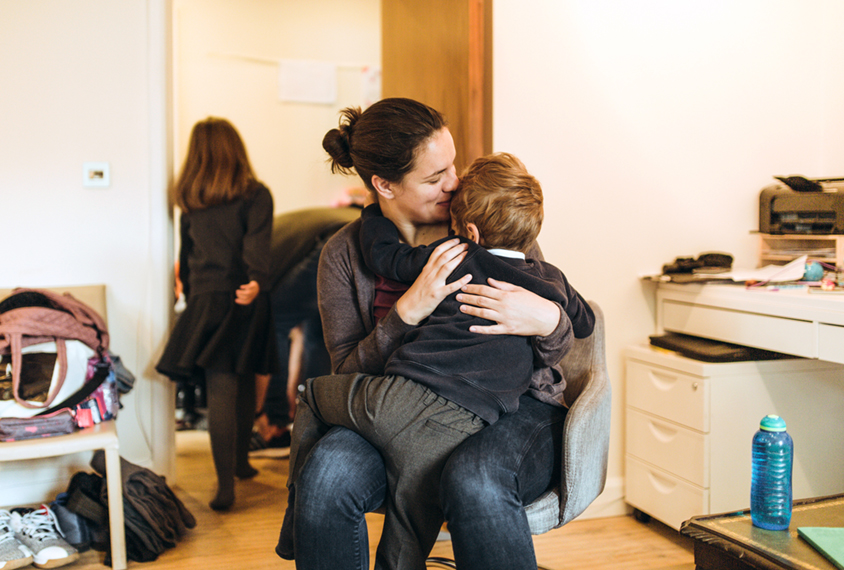Autism with intellectual disability is less heritable than autism alone, according to a new study of how the conditions run in extended families.
About a third of autistic people have intellectual disability (ID) — an intelligence quotient (IQ) of 70 or less. Autistic people with lower IQs are more likely to have spontaneous, or de novo, gene mutations than autistic people with higher IQs, studies show, suggesting that the genetic underpinnings of autism with ID differ from those of autism alone.
The new work supports that theory with a different line of evidence, says lead investigator Brian Lee, associate professor of epidemiology and biostatistics at Drexel University in Philadelphia, Pennsylvania.
His team examined rates of autism with and without ID in a large population dataset. The work is part of a broader effort to understand whether there are distinct forms of autism and, if so, how their underlying causes may differ.
“I think where this is taking us is the idea that not all autisms are the same,” Lee says.
Family history:
The researchers tapped the Stockholm Youth Cohort to analyze diagnostic records from 567,436 people born in Sweden from 1984 to 2009; 8,354 have autism alone, and 2,566 have autism with ID. They also checked national registries to find out whether any of the participants’ parents, siblings, aunts, uncles or cousins have an autism diagnosis.
The researchers did not include data on whether the relatives have intellectual disability — in part because the two conditions could have different diagnosis patterns over time, confounding the results, Lee says.
The kin of people with autism alone are more likely to be autistic than are those of people with autism and ID, the study shows. Having an autistic relative is associated with an increased likelihood of having autism with or without ID, and the likelihood goes up the more closely related that relative is.
A person with an autistic mother is nearly 20 times as likely as one without to have autism alone, and 11 times as likely to have both autism and ID. The findings were published in October in Autism Research.
Overall, heritability accounted for 65 percent of the odds of having autism autism alone, and 33 percent of the odds for autism with ID.
It’s possible that environmental factors are more severe in people with ID, Lee says.
Useful data:
The study design is an “innovative” use of “a really rare dataset,” says Tinca J.C. Polderman, associate professor of child and adolescent psychiatry at Amsterdam UMC in the Netherlands, who was not involved in the work.
“This is a very well conducted study, with a powerful sample size,” Polderman says.
It’s important that the study included people with ID, who tend to be “neglected” in many larger studies, says Dorret Boomsma, professor of biological psychology at Vrije University in Amsterdam, who was not involved in the work.
“It’s one of the very positive elements of the paper that they actually pay attention to this group,” she says.
The findings also support work showing that more severe ID tends to be less heritable than less severe ID in people without autism, Boomsma says.
Ultimately, a better understanding of the origins of different forms of autism could improve diagnostic procedures and treatment options, she says. Future work should factor in differences in how many children are born to people with and without ID, and examine whether families that have a child with ID are likely to have fewer children overall, both of which could affect the apparent heritability of the condition.





